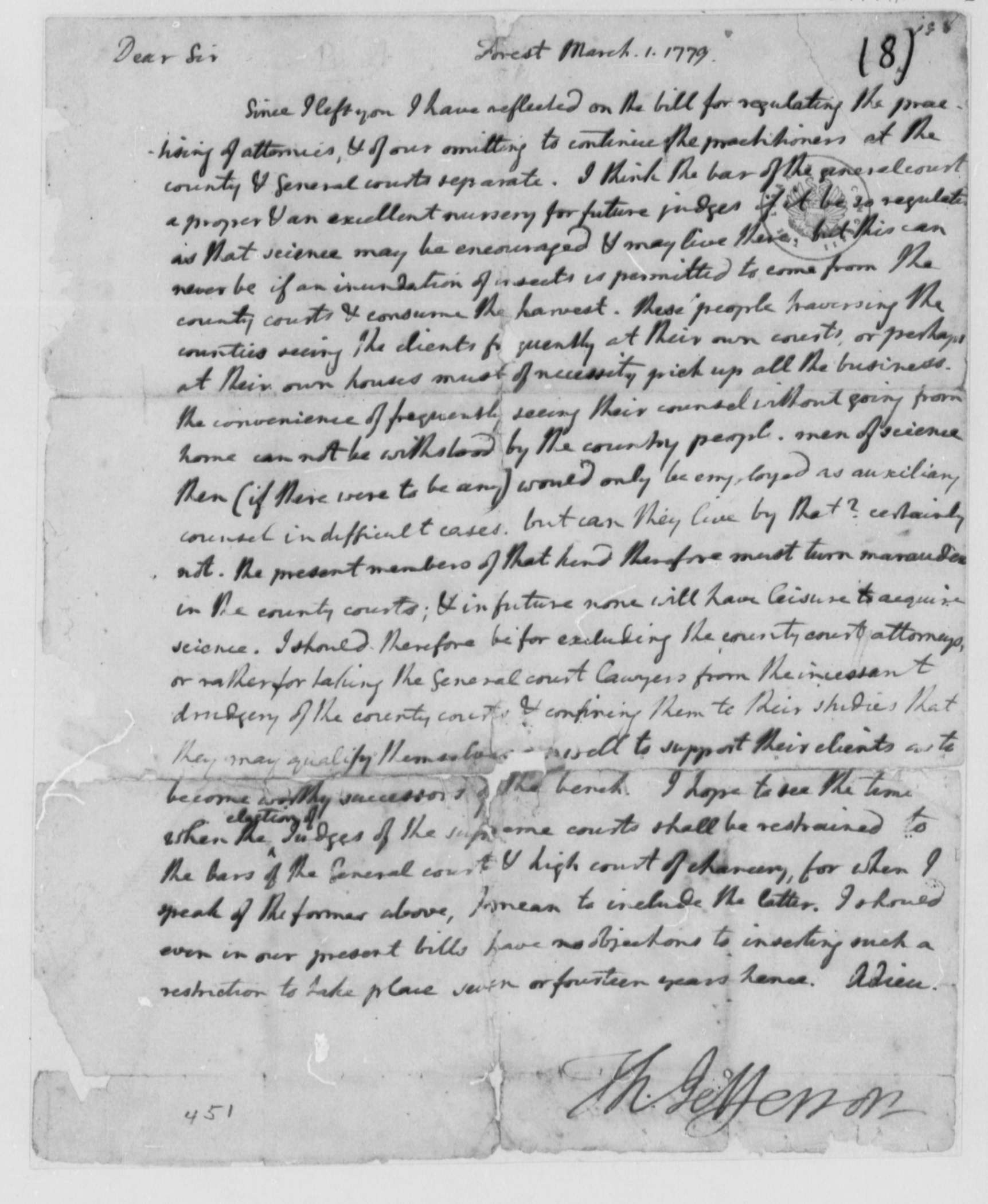Thomas Jefferson to Wythe, 1 March 1779
Thomas Jefferson discusses his opinions on county and general courts with George Wythe. Jefferson does not appear to think highly of county court judges and expresses his belief that judges appointed to the Supreme Court should only come from either a general court or a high court of chancery.

"Thomas Jefferson to Wythe, 1 March 1779." Image from the Library of Congress, The Thomas Jefferson Papers.
Letter text
Forest March. 1. 1779.
Dear Sir
Since I left you I have reflected on the bill for regulating the practising of attornies, & of our omitting to continue the practitioners at the county & general courts separate. I think the bar of the general court a proper & an excellent nursery for future judges if it be so regulated as that science may be encouraged & may live there, but this can never be if an inundation of insects is permitted to come from the county courts & consume the harvest. These people traversing the counties seeing the clients frequently at their own courts, or perhaps at their own houses must of necessity pick up all the business. The convenience of frequently seeing their counsel without going from home can not be withstood by the country people. Men of science, then (if there were to be any) would only be employed as auxiliary counsel in difficult cases. But can they live by that? Certainly not. The present members of that kind therefore must turn marauder in the county courts; & in future none will have leisure to acquire science. I should therefore be for excluding the county court attorneys, or rather for taking the General court lawyers from the incessant drudgery of the county courts & confining them to their studies that they may qualify themselves as well to support their clients as to become worthy successors of the bench. I hope to see the time when the election of Judges of the supreme courts shall be restrained to the bars of the General court & high court of chancery, for when I speak of the former above, I mean to include the latter. I should even in our present bills have no objections to inserting such a restriction to take place seven or fourteen years hence. Adieu.